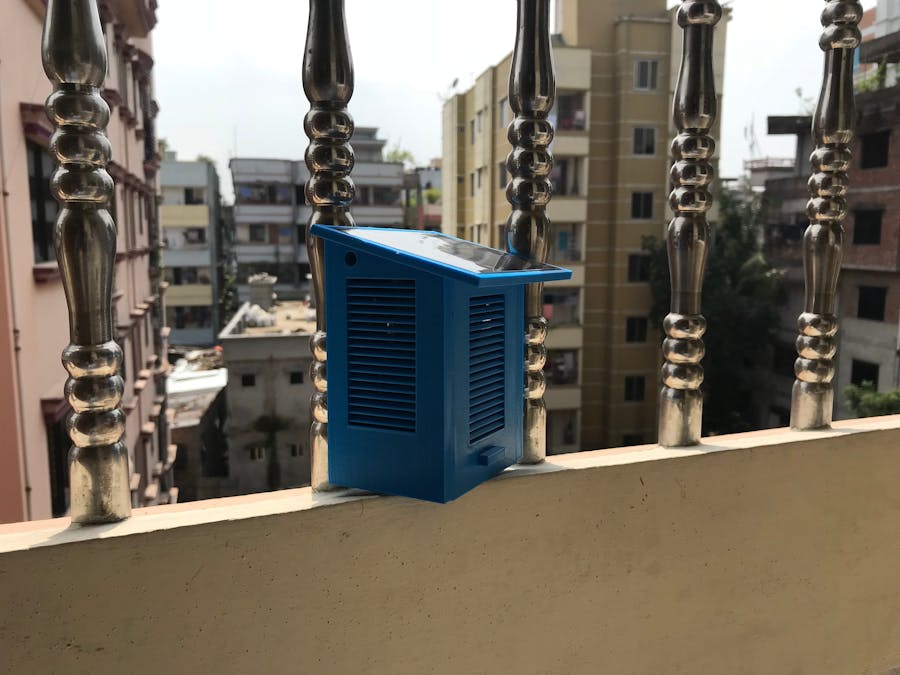My city Dhaka (capital of Bangladesh) is one of the world's largest cities, with a population of 18.89 million people in the Greater Dhaka Area. It is also the 4th most densely populated city in the world.
Sorry to say that Dhaka has been ranked highest in the US Air Quality Index (AQI), for having the worst level of air pollution in the world. Noise also always goes far beyond the permissible level. Sound pollution has reached the highest 120-130 decibels (dB) at many points of the city -- almost double of the permissible level.
The PlanTo save the city it is very high time to take necessary steps. Creating public awareness is first one of the steps. For creating public awareness we need real time data of the noise we are creating everyday. If every one can see the noise level and air quality in real time it will create a mental pressure for taking steps against the pollution. Researcher will also be benefited from this open source real time data.
From the thinking I designed an open source real time city pollution monitoring device which monitors noise level, air quality, temperature, and humidity and sends the data to the ThingSpeak. I used GSM for data transmission because availability of wifi is very much limited in the city. The device gets power from a solar panel.
I tried to keep it very simple so that anybody can make his own device. No soldering is required to make the device. Just collect the required components, upload the code and plug and play all the modules. You are ready to go.
Following figures shows all the required components and modules. All the things are available in seeedstudio.com.
First things first. Collect all the components mentioned above. The connection is very simple. No soldering or wire joint is required for making the device. For making your own just follow the steps (I am sure, the image uploaded below will help you):
- i ) Add a sim card to Seeeduino GPRS at the bottom side. Be sure you have enough mobile data in your SIM.
- ii) Upload the code attached in the code section. First code snippet is for testing and debugging. Upload second or third file. Third code snippet works as power saving mode.
- iii) 3D print the attached STL files
After printing both files check the top cover match parfectly to the main part. Use send paper to make it smooth if required.
- iv) Attach the base shield to the Seeeduino GPRS and place these inside the printed box. You can add some hot glue for tightly attaching the modules with the box.
- v) Connect Grove sound sensor to A0, Air quality sensor to A1 and Temperature and Humidity sensor to D4 connector of the base shield.
- vi) Place the solar panel at the top of the box and bring out the wires inside the box through the hole. Use some glue to fix the solar panel with the box.
- vii) Fix all the sensor modules and the GPRS antenna to suitable location inside the box using hot glue,
- viii) Connect the solar panel and battery to appropriate connector of the LiPo Rider pro module and place inside the box as shown in the photo below. Turn on the power switch and place the top cover of the box.
If everything goes well it will start uploading the sensor data to ThingSpeak.
Congratulations! You have made your own device. Place the device in a suitable location of your city and start sharing the environmental data of your location to the community.
This is the sample graph generated on ThingSpeak.













Comments